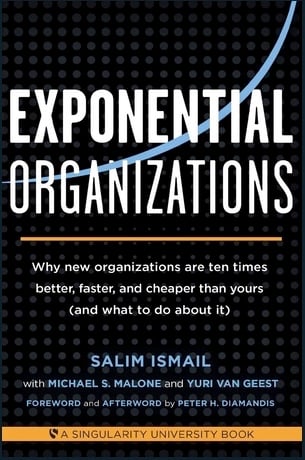Are you working unpaid overtime and struggling to see the value of this for yourself or for your organisation? We are interested to understand the positives and negatives of unpaid overtime, for individuals and organisations. Help us shed light into the matter by taking this survey. This is open to everyone working in Australia.
Working long hours without pay has been a fact of business life for over 50 years, probably longer. I’ve done plenty myself and usually accepted it. So when Step Change and I decided to do a survey about it, many business bosses we know asked, “Why?”
Yes, there is an increasing emphasis on work-life balance, particularly among the young. However we believe there’s another less obvious factor at play.
We are seeing more and more examples of unpaid overtime in parts of organisations as an early trip wire of bigger business problems. So we thought we’d investigate with a survey and a story.
I’ve seen both sides of this story, and I understand the multiple perspectives of both workers and employers.
As a trainee developer not long out of school, I was prepared to do extra time. In my first two jobs, I was learning so much so fast from really experienced masters of the trade that I was happy to spend the time. The same was true of my early years as an accountant and auditor, again working with people who willingly taught me everything they knew.
In between though, I took a role where I was promised less overtime (I needed a break) only to end up doing more than ever. Worse, what I learned, I had to work out for myself. I had almost no support from above from a boss who knew less about both the client’s business and the technology than I did.
My boss had underquoted with a fixed price job. He had recommended technology that (it turned out) had never been used in combination before — in the world. He cut my original budget in half. (We came in on my budget). I worked nearly every weekend often till 2:00 a.m. without any extra pay.
The client was happy and paid for all the time I spent, almost double what I was paid for. Taking the rap for the overrun, I gave up coding and swore I’d never forget.
Later, as leader of a national consulting practice, I took that memory with me for two reasons: I didn’t want others to go through what I had. Just as important, from a (harder-nosed) business perspective, you need to know how much the job costs.
To do that, you need to know how much time it takes and why. Otherwise, you can’t cost future jobs and eventually start losing money. But even back then, managers gamed the system to make themselves look good, lift their reputation, and their pay packets.
In large accounting and other practices, people get paid a salary, so overtime is not normally paid for. I increasingly saw great people being asked to work extremely long hours without pay. In many cases, this wasn’t billed to the client — managers or partners had underquoted to win the work.
This didn’t work for me in building a better practice. The best people were consistently over-allocated and overworked and eventually left for an easier life. Others cut corners to do the job in the time allocated.
Finally, it was almost impossible to work out the effort involved, and as fee pressure grew, we didn’t have the opportunity to understand why jobs cost more than the budget and work out how to do them more effectively or ask the customers for more money. We put a stop to it then, and the work environment improved, as did our results.
But we are hearing now that this practice is even more common as for many, sales has become the way to more money. Talking to employees in, for example, technology companies, today, many great people experience similar issues. Sales and management often get big bonuses paid upfront. Others have to deliver and struggle with oversold and poorly defined requirements. There are plenty of other examples. It doesn’t matter who takes the blame (often delivery and customer service); in the end, the company’s reputation suffers, as is becoming apparent.
Looking forward, organisations and people are being asked to do more with less. Resourcefulness and adaptability will be critical to handle the pace of change and competition. Customers are getting more demanding and have many more channels to express their disappointment and often disgust. It’s getting harder to hide. It’s also often hard to see.
So how does management know if this problem is affecting your organisation? That is why we need better diagnostics —- and why we need people to complete this survey.
The survey will help us to understand the impact of unpaid overtime on workers in organisations — where it is part of people’s development and where it is more problematic. In the process, we are asking questions to establish the potential impact on different organisations. We will be releasing the results in July.
Feel free to share the link to colleagues, relatives, fellows, employees, and others with an interest in providing feedback.

















